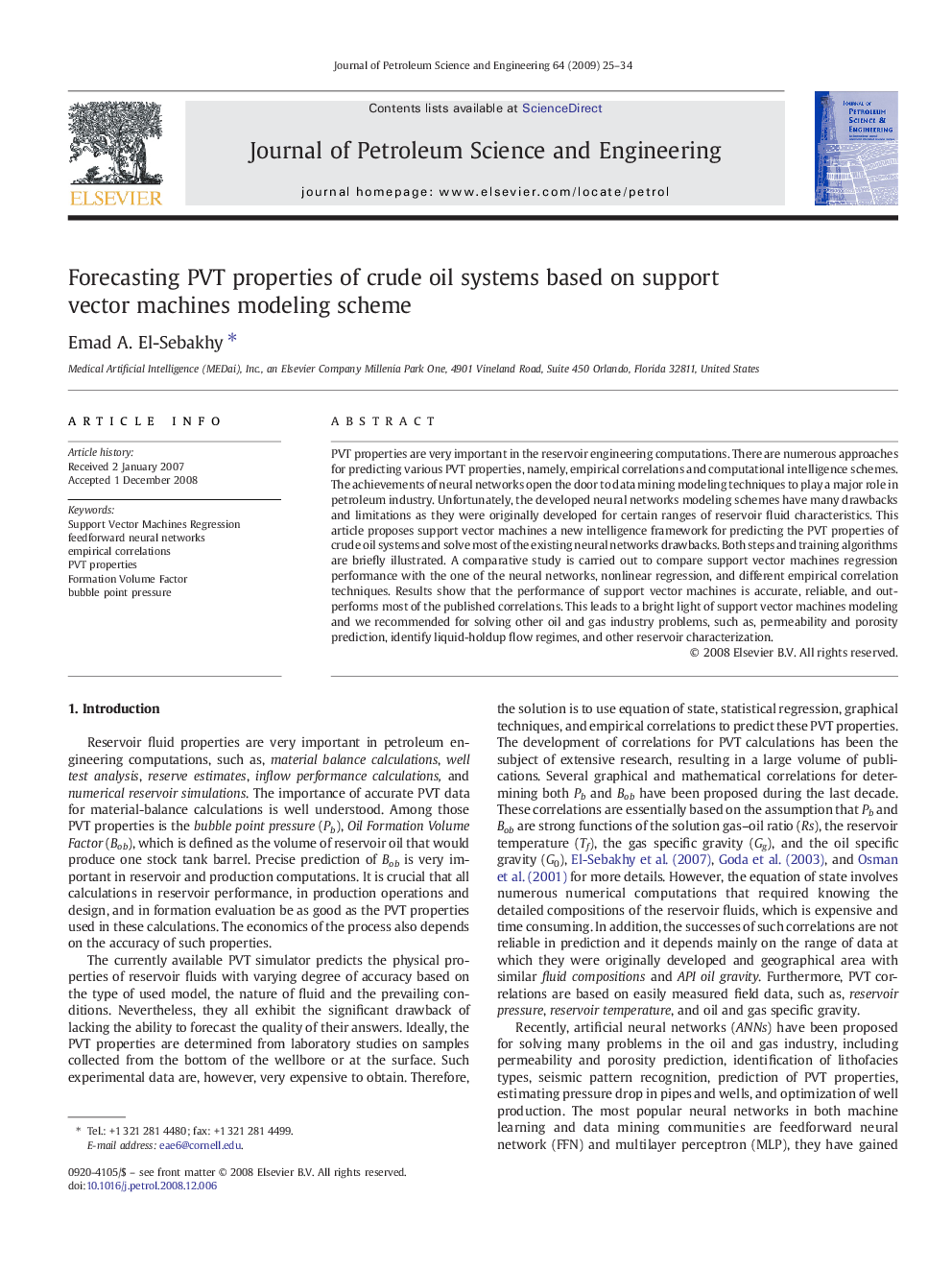| Article ID | Journal | Published Year | Pages | File Type |
|---|---|---|---|---|
| 1756178 | Journal of Petroleum Science and Engineering | 2009 | 10 Pages |
PVT properties are very important in the reservoir engineering computations. There are numerous approaches for predicting various PVT properties, namely, empirical correlations and computational intelligence schemes. The achievements of neural networks open the door to data mining modeling techniques to play a major role in petroleum industry. Unfortunately, the developed neural networks modeling schemes have many drawbacks and limitations as they were originally developed for certain ranges of reservoir fluid characteristics. This article proposes support vector machines a new intelligence framework for predicting the PVT properties of crude oil systems and solve most of the existing neural networks drawbacks. Both steps and training algorithms are briefly illustrated. A comparative study is carried out to compare support vector machines regression performance with the one of the neural networks, nonlinear regression, and different empirical correlation techniques. Results show that the performance of support vector machines is accurate, reliable, and outperforms most of the published correlations. This leads to a bright light of support vector machines modeling and we recommended for solving other oil and gas industry problems, such as, permeability and porosity prediction, identify liquid-holdup flow regimes, and other reservoir characterization.
